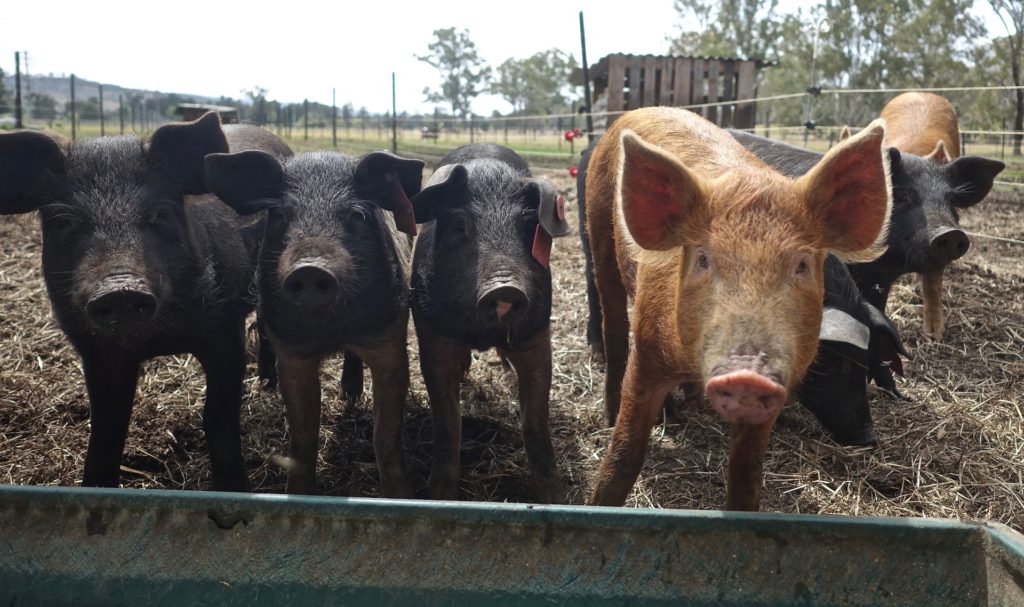An Insurance-Coverage Dispute Not Worthy of Prime Time: Murphy Brown vs. Its Insurers
Nuisance lawsuits against pork producers Murphy-Brown and Smithfield Foods have received extensive publicity in the past two years. In those cases, individuals that live near hog farms owned by Murphy-Brown and Smithfield allege that the hog farms—namely, the odors, dust, noise, and other things that go along with hog-farm operations—are a public nuisance. So far, the lawsuits have yielded verdicts that total $100 million against the pork producers.
A separate lawsuit in the North Carolina Business Court, Murphy-Brown, LLC v. ACE American Insurance Co., arises from a fight between the pork producers and their insurers over who is responsible for paying the nine-figure bill for damages and legal fees from those verdicts. The lawsuit features a claim under N.C. Gen. Stat. § 75-1.1 based on alleged violations of N.C. Gen. Stat. § 58-63-15(1) and (11).
In a recent decision in that lawsuit, Judge Gregory P. McGuire granted the insurers’ motion for judgment on the pleadings on the section 75-1.1 claim.
This post reviews the decision—a decision that considers when an alleged misrepresentation by an insurer triggers a violation of chapter 58 and, ultimately, section 75-1.1.
Murphy-Brown and Smithfield carried excess-liability insurance policies on the farms at issue in the nuisance litigation. But when Murphy-Brown and Smithfield sought reimbursement for defense costs under those policies, the insurers denied coverage. Why? According to the insurers, a “pollution exclusion clause” in the policies precludes coverage on claims arising from the nuisance litigation. Pollution exclusions—which are common in corporate insurance policies—allow insurance companies to decline coverage for pollution that occurs from normal business operations.
The pork producers sued eleven insurance companies for breaches of contract, declaratory judgment, and section 75-1.1 violations.
The Section 75-1.1 Claim
The pork producers premised their section 75-1.1 claim on misrepresentations and false advertising of policy contracts under section 58-63-15(1), and on two separate unfair claim-settlement practices under sections 58-63-15(11)(a) and (n). As we have previously explained, violations of these subsections can automatically trigger a violation of section 75-1.1.
Murphy-Brown and Smithfield argued that the insurers’ denial of coverage and indemnity based on the pollution-exclusion clause amounted to misrepresentations about the coverage provided by the excess policies. After all, the pork producers bought the policies to protect them from the very liabilities associated with hog farms. They also argued that the insurers’ reliance on the pollution exclusion was an unreasonable explanation for denying coverage, and was intended to induce the pork producers to forfeit or surrender the excess policies.
The Business Court disagreed.
Three Separate Theories Failed
First, the court rejected Murphy-Brown and Smithfield’s argument that the insurers violated section 58-63-15(1) by allegedly mispresenting the coverage provided by the excess policies. Relying on the North Carolina Supreme Court’s opinion in Jefferson-Pilot Life Insurance Co. v. Spencer, the court explained that section 58-63-15(1) is directed at false statements connected with the sale of insurance policies and applies only before the policies are purchased. Here, the alleged misrepresentations were made under the excess policies—specifically, the pollution-exclusion clause—once those policies were already in effect.
The pork producers’ second argument fared no better. They argued that, in the words of section 58-63-15(11)(a), the insurers “[m]isrepresent[ed] pertinent facts or insurance policy provisions relating to coverages at issue.” According to the insurers, however, the alleged misrepresentation was merely a disagreement about how to interpret the pollution exclusion. The Business Court agreed, noting that the pork producers’ amended complaint was “devoid of any ‘specific misrepresentation’ made by any [insurer].” The court pointed to Nelson v. Hartford Underwriters Insurance Co., where the North Carolina Court of Appeals held that an insurer did not violate section 58-63-15(11)(a) by asserting that a specific exclusion precluded coverage of an insured’s claim. The Business Court applied the same rationale to the pork producers’ claim.
Finally, Murphy-Brown and Smithfield claimed that the insurers violated section 58-63-15(11)(n) by “[f]ailing to promptly provide a reasonable explanation of the basis in the insurance policy” for denying coverage. Judge McGuire described this argument as no more than “a repackaging of the same contention underlying their other [section 75-1.1 claims].” He contrasted the facts with Miller v. Nationwide Mutual Insurance Co., where an insurer acknowledged that an insured should be reimbursed under a policy, but refused to make the payments or explain the basis for that refusal.
In short, the section 75-1.1 claim in Murphy-Brown failed because the pork producers’ claim amounted to nothing more than a simple dispute about coverage. The claim alleged no substantial aggravating circumstances accompanying a breach of contract, and only conclusory allegations to support its misrepresentation-based theories. The Business Court was careful to note that a plaintiff is not required to allege and prove a violation of chapter 58 to state an independent claim against an insurer under section 75-1.1. In this case, however, that’s what the pork producers tried to do. You might say that they “bet the farm” on that theory. Either way, the theory proved too tough a row to hoe.
Author: Scottie Lee



